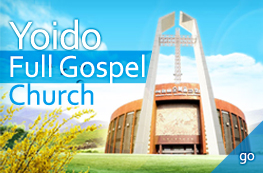"Christianity is different from other religions. It should not fall into formality or secularism. Wasn’t Christ nailed on the cross to terminate the religious formality and secularism?” (Seongseo Joseon, vol 12, 1935)
“Christian evangelizing does not happen through beautiful speaking or writing… Now is the time to prove the Gospel with believers’ entire being. Why are so many evangelists today multi-talented cultural experts who leave no smell or trace?” (In Kim Gyo-shin’s sermon titled “Spreading the Gospel by our Existence,” October 1937)
Each comment of great Korean Christian thinker Kim Gyo-shin (1901∼1945·photo) still rings true today, when the situation parallels that of the early Korean church. In 1917, “Chunwon” Lee Gwang-su criticized Korean Christianity in his column in Maeil Shinbo: “The mindset of the Korean church is very church-supremacist. Pastors and elders are “yangban” (aristocrats), and lay believers are “sangnom” (working class), while non-believers are considered a different kind of people. Church leaders are ignorant and believers’ Christian faith is superstitious.” After the March First Independence Movement, criticism of the Christian churches from both inside and outside increased further, particularly due to the incident involving Seventh-Day Adventist Haysmer and the revelation of some drawbacks in the Nevius Plan.
With his faith-based historical consciousness, Kim Gyo-shin pointed to a different path from the mainstream theology of his day. He introduced Japanese Christianity’s indigenous Non-church Movement, and emphasized a true Christianity, a Korean Christianity. At the time, however, mainstream denominations excluded those who emphasized faith, while the Japanese rulers watched and oppressed those who emphasized historical consciousness. Nonetheless, from the 1930s on, the Non-church Movement and its documents touched almost all Korean church pastors. The Revs. Lee Yong-do, Ju Gi-cheol, and Son Yang-won were particularly enthusiastic about it.
Born April 1, 1901, to a strict Confucian family in Hamheung, Hamgyeongnam-do, Kim graduated from Hamheung Public School of Agriculture before becoming a participant in the March First Movement. Later he went to Japan, where -in 1920, as a student of Seisokugakuen High School- he became a Christian after listening to the sermons of a street evangelist named Matsuda. Kim was particularly attracted to the Sermon on the Mount, and considered the teachings of Christianity to be nobler than those of Confucianism. He was baptized in June that year.
Kim Gyo-shin admired Uchimura Ganzo (內村鑑三) and learned his non-church thoughts by participating in his Bible lectures for seven years. In 1927, after his graduation from Tokyo University of Education, he returned to Korea and taught geology and natural history at Yeongsaeng High School in Hamheung, at Yangchung High School and Jaeil High School in Seoul, and at Songdo High School in Gaeseong.
While working at his profession as a high school teacher, Kim published “Seongseo Joseon (聖書朝鮮)” (Bible Korea·photo), hoping for the salvation of the Korean people, together with fellow Uchimura followers Ham Seok-heon, Song Du-yong, Jeong Sang-hun, Yu Seok-dong, and Yang In-seong. The magazine was the first Korean periodical on non-church faith. Its title means “The Bible on Joseon, Joseon on the Bible,” utilizing Uchimura Ganzo’s motto in Korean style.
“Seongseo Joseon,” however, was forced to close down in 1942 because of its 158th issue (March 1942). The preface of that issue used the image of a frog hinting to the sleeping Korea that hopes would bud if the Korean people awakened. The Japanese government confiscated all copies of issue no. 158 and put Kim Gyo-shin, along with Ham Seok-heon and Song Du-yong, in Seodaemun Prison for one year.
After his release, Kim Gyo-shin worked at Hamheung Nitrogenous Fertilizer Factory in 1944, inspiring the workers with the Korean spirit. In April the next year, however, he died of typhus fever while taking care of an infected fellow worker. During his entire life, he maintained his stance against Japan’s forced name change. His direct students included Yun Seok-jung, Son Gi-jeong, and Yu Dal-yeong. The Korean government recognized his independence efforts, and in 2010 posthumously awarded him the National Foundation Medal.
On November 26, the Preparatory Committee for Kim Gyo-shin Commemoration Projects (director: Lee Man-yeol, former chair of National History Publication Committee) announced that it will hold its inaugural general assembly at 5 p.m. on November 28, in the Korean Christian Building at Jongno-5ga, Seoul.
Reporter Sangmok Shin (smshin@kmib.co.kr), with Yeara Ahn-Park (yap@kmib.co.kr)
Click here for the original article in Korean
Life and Faith of Kim Gyo-shin (1901∼1945), Christian Thinker During Korea’s Dark Period
2014-12-01 17:15



